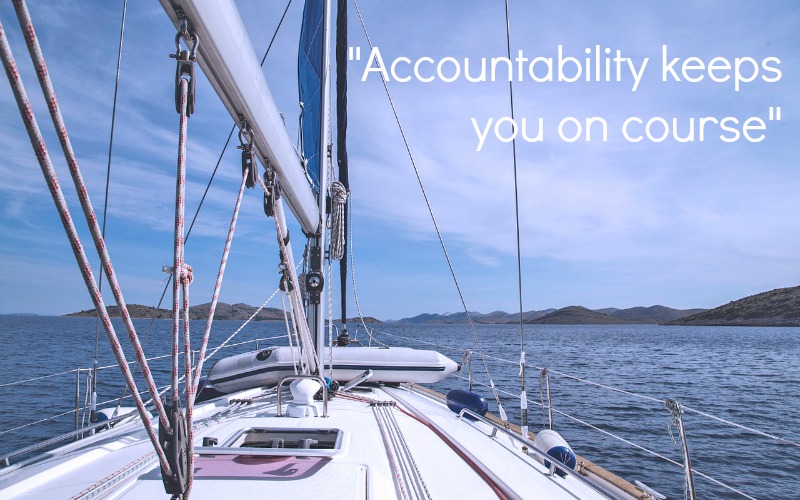
In our last post, we talked about how you can rebuild your reputation, your career, your relationships — even after you made a poor decision that derailed your life.
Just to reiterate, we suggested you identify your core values and use those as your “rhumb line” for moving forward beyond your past.
“So what’s a rhumb line?” you might be asking. It’s a navigation term used by sailors and aviators. It refers to an imaginary straight line marking the course a vessel or aircraft follows to reach a destination.
But as all navigators know, things such as currents, storms, underwater reefs, rocks, mountains and buildings force vessels and aircraft off course. They have to return to their rhumb line as soon as possible, or risk getting lost, never to reach their destination.
You might need someone to help you return to your rhumb line when you drift off course.
This is where accountability comes in.
It’s not enough to decide which values you’re going to live your life by going forward. Now you need to find someone in your life to whom you can become accountable – a close friend, a coach, a relative. For some the first instinct might be to say “God” or another religious entity is their mentor. That’s great, but for true accountability another human is actually required.
Why? Because if no one in your life is actively looking over your shoulder and nudging you back on course when you drift, you:
A) might not realize when you’re letting your values slide
B) will have less incentive to stay on course
C) more dangerously, might fall into self-deception
Just think, if parents, teachers, coaches and other leaders in our lives didn’t hold us accountable for our actions when we were young? We wouldn’t have known when we were doing something wrong, and our potential would have been vastly limited. Honestly, most of us are really just grown-up kids anyway. We all need accountability.
Just a word of caution – if your accountability mentor is too timid or too busy to talk to you straight, you might want to choose someone else. For example, you might automatically assume your spouse or best friend should be your mentor because they are always in your corner, no matter what.
While their consistent encouragement can be very helpful, you need someone who will call you out when you’re not behaving the way you said you would.
Another thing to consider when choosing your mentor is what are their values? If your best friend has a tendency to stray from his marriage or skim a little off the books for personal gain, will he be the best person to help you avoid your pitfalls?
One last thing to consider is to avoid choosing someone who will just tell you what they think you should do. Say you choose your mom, but your mom has a tendency to barrage you with an endless stream of opinions and advice that might be good — but not good for you. Her love or worry for you may make it impossible for her to be impartial or to give you encouragement if she doesn’t fully understand your goals.
You might be surprised to find that once you have a clear cut “rhumb line” of values to live by, it becomes much simpler to stay on course, even as events and people in your life constantly challenge you. You’re no longer drifting along aimlessly, and when you do get knocked off course, you know it – and you know you need to get back on as soon as possible.
You may also find that you won’t need your accountability mentor quite as often as you make progress toward becoming the person you want to be. As you walk this out, don’t be shocked if someone admires you enough to choose you to be their accountability mentor!
If you’re ready to unlock your potential, I show you how in a 9-step, strategic system I call WINology. This system is broad enough to be tailored to fit individuals and organizations but specific enough to be a blueprint you can follow step by step.
Who would you choose to be your accountability mentor? Let us know in the comments section below!